
Historic Center of Montpellier: A Journey Through Time
Nestled in the heart of Southern France, the Historic Center of Montpellier invites you to step back in time and explore a rich tapestry of history and culture. This charming neighborhood, with its narrow medieval streets and stunning architecture, paints a vivid picture of the city's illustrious past. The Historic Center is a labyrinth of winding alleys and picturesque squares, each corner revealing a new story. The Place de la Comédie, often referred to as the 'Egg' due to its oval shape, is the bustling heart of the area. Here, you'll find street performers, open-air cafés, and the grand Opéra Comédie, a testament to Montpellier's vibrant cultural life. As you wander through the Historic Center, don't miss the majestic Saint-Pierre Cathedral with its impressive Gothic façade and towering spires. The nearby Musée Fabre, one of France's most renowned art museums, houses an extensive collection of European masterpieces. For a taste of local life, visit the bustling markets and quaint boutiques that line the streets, offering everything from fresh produce to artisan crafts. The Historic Center is not just about the past; it is a living, breathing part of Montpellier that seamlessly blends history with modernity. Enjoy a leisurely meal at one of the many bistros, where you can savor regional specialties like cassoulet and fresh seafood. As the sun sets, the neighborhood comes alive with a vibrant nightlife, offering everything from cozy wine bars to lively clubs.
Local tips in Historic Center
- Wear comfortable shoes as the cobblestone streets can be uneven.
- Visit early in the morning or late afternoon to avoid the crowds.
- Don't miss the local markets for fresh produce and unique souvenirs.
- Take a guided walking tour to learn about the history and hidden gems of the area.
- Try the local wines and regional dishes at the neighborhood bistros.
Historic Center of Montpellier: A Journey Through Time
Nestled in the heart of Southern France, the Historic Center of Montpellier invites you to step back in time and explore a rich tapestry of history and culture. This charming neighborhood, with its narrow medieval streets and stunning architecture, paints a vivid picture of the city's illustrious past. The Historic Center is a labyrinth of winding alleys and picturesque squares, each corner revealing a new story. The Place de la Comédie, often referred to as the 'Egg' due to its oval shape, is the bustling heart of the area. Here, you'll find street performers, open-air cafés, and the grand Opéra Comédie, a testament to Montpellier's vibrant cultural life. As you wander through the Historic Center, don't miss the majestic Saint-Pierre Cathedral with its impressive Gothic façade and towering spires. The nearby Musée Fabre, one of France's most renowned art museums, houses an extensive collection of European masterpieces. For a taste of local life, visit the bustling markets and quaint boutiques that line the streets, offering everything from fresh produce to artisan crafts. The Historic Center is not just about the past; it is a living, breathing part of Montpellier that seamlessly blends history with modernity. Enjoy a leisurely meal at one of the many bistros, where you can savor regional specialties like cassoulet and fresh seafood. As the sun sets, the neighborhood comes alive with a vibrant nightlife, offering everything from cozy wine bars to lively clubs.
Iconic landmarks you can’t miss
Place de la Comédie
Experience the vibrant heart of Montpellier at Place de la Comédie, where history meets culture in a stunning architectural setting.
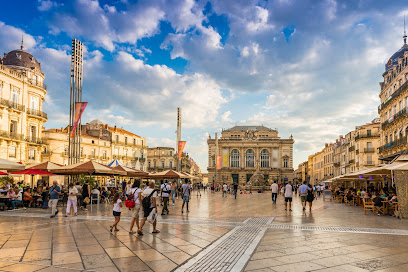
Esplanade Charles-de-Gaulle
Discover the beauty of Montpellier at Esplanade Charles-de-Gaulle, a scenic promenade perfect for relaxation, culture, and unforgettable moments.
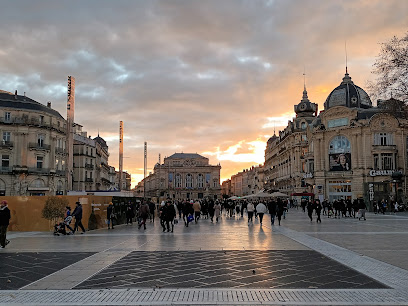
Arc de Triomphe
Explore the Arc de Triomphe in Montpellier: A historical monument blending art, culture, and local life in the heart of the city.
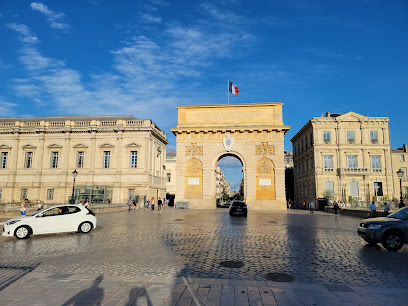
Promenade du Peyrou
Explore the beauty of Promenade du Peyrou, a historical and natural gem in Montpellier, perfect for leisurely strolls and cultural experiences.
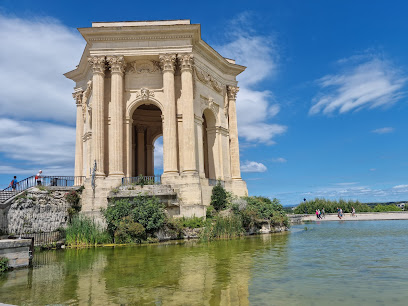
Musée Fabre
Explore the rich artistic heritage at Musée Fabre in Montpellier, featuring masterpieces from the Renaissance to contemporary art.
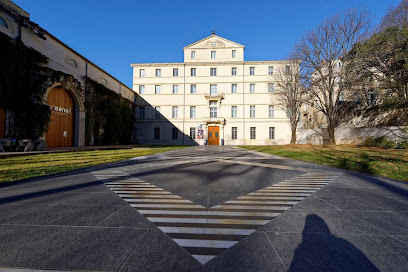
Montpellier Cathedral
Experience the grandeur of Montpellier Cathedral, a masterpiece of Gothic architecture and a serene sanctuary in the heart of Montpellier, France.
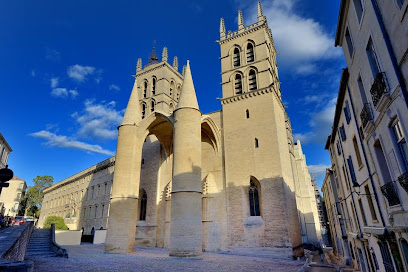
Aqueduc Saint-Clément
Explore the Aqueduc Saint-Clément, Montpellier's stunning historical aqueduct, where history meets breathtaking architecture in a picturesque setting.
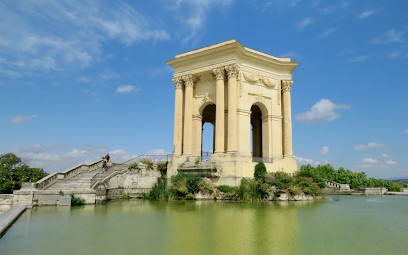
Esplanade de l’Europe
Explore the vibrant Esplanade de l’Europe in Montpellier, where modern design meets historical charm, perfect for leisurely strolls and cultural events.
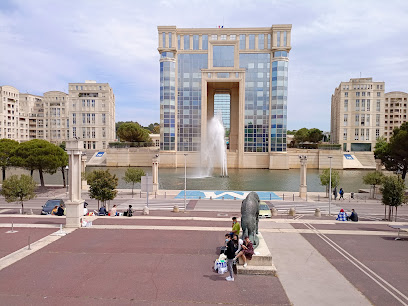
Château De Flaugergues
Discover the enchanting Château de Flaugergues in Montpellier, where history, elegance, and fine wines converge in a picturesque setting.
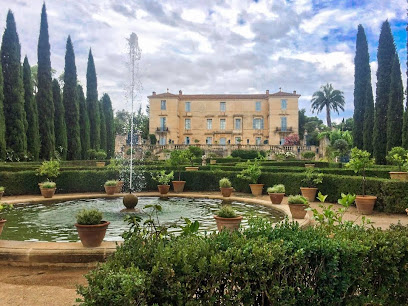
La Tour de la Babote
Experience the historical allure and stunning views from La Tour de la Babote, a must-see landmark in Montpellier, France.
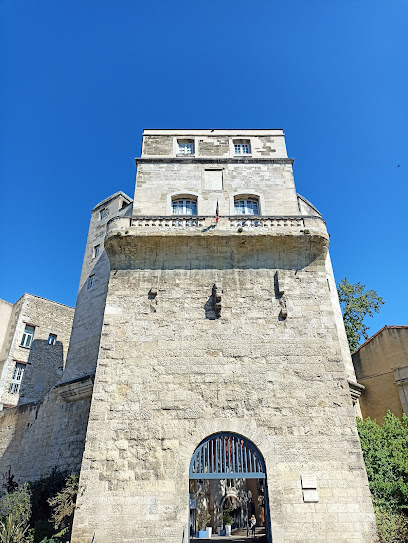
Place de La Canourgue
Discover the serene beauty of Place de La Canourgue, a picturesque park in Montpellier filled with lush greenery, stunning architecture, and tranquil vibes.
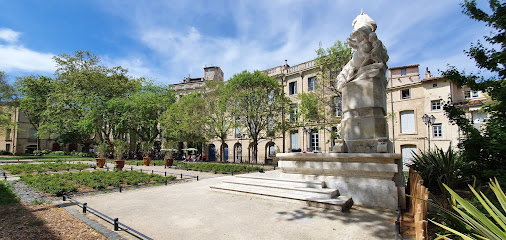
Château de la Mogère
Explore the enchanting Château de la Mogère, a stunning castle and tourist attraction in Montpellier, surrounded by beautiful gardens and rich history.
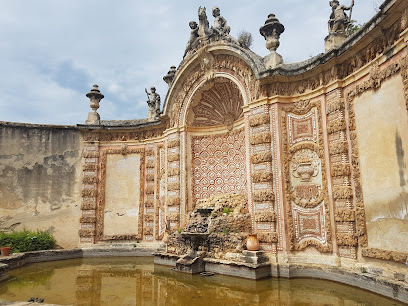
Fountain of the Three Graces
Experience the beauty of the Fountain of the Three Graces, a stunning landmark in Montpellier's vibrant Place de la Comédie, a must-see for every tourist.
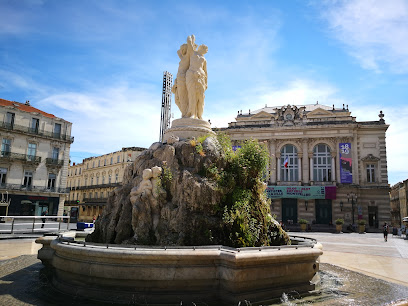
Musée du Vieux Montpellier
Discover the captivating history of Montpellier at Musée du Vieux Montpellier, a must-visit museum showcasing the city's rich cultural heritage.
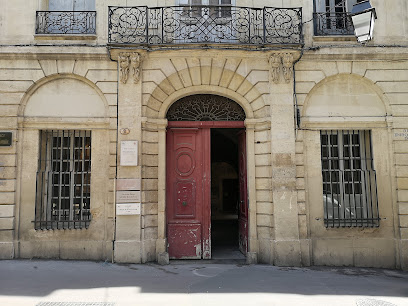
Place du Nombre d'Or
Discover the enchanting Place du Nombre d'Or in Montpellier: a vibrant square filled with history, culture, and delightful culinary experiences.
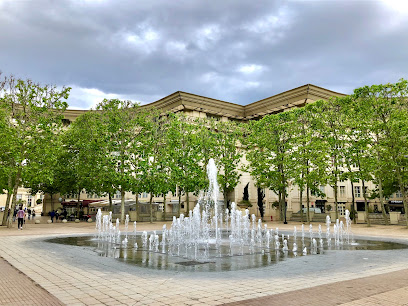
Unmissable attractions to see
Aqueduc Saint-Clément
Explore the Aqueduc Saint-Clément, a stunning historical aqueduct in Montpellier, showcasing architectural brilliance and serene surroundings.
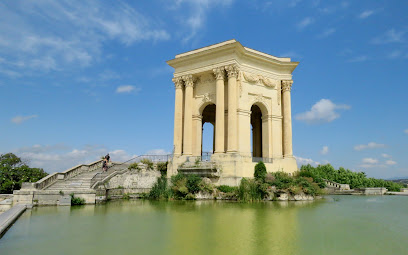
Château de la Mogère
Explore the enchanting Château de la Mogère, a captivating castle in Montpellier, rich in history and architectural beauty, surrounded by lovely gardens.
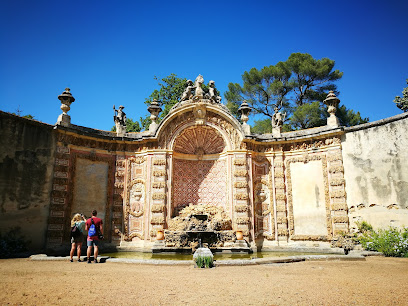
Essential places to dine
Les Fils À Maman Montpellier
Experience the delightful fusion of French cuisine at Les Fils À Maman Montpellier—where comfort meets creativity in every bite.
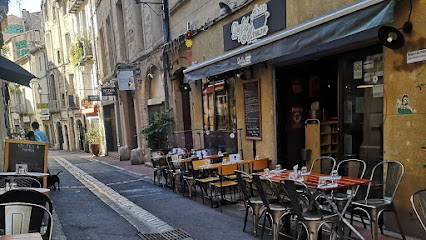
Le Petit Jardin Montpellier
Experience authentic French dining amidst serene gardens at Le Petit Jardin in Montpellier.
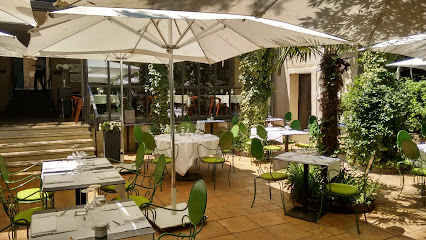
Les Bains de Montpellier
Experience exquisite French cuisine at Les Bains de Montpellier - where tradition meets modern elegance in every dish.
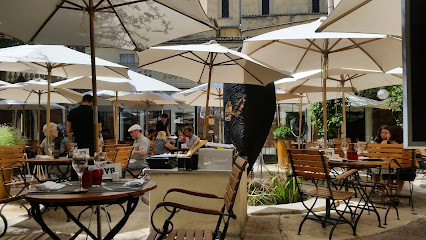
Le Paresseur Restaurant | Montpellier Centre
Experience the essence of French cuisine at Le Paresseur in Montpellier – where every dish tells a story of flavor and tradition.
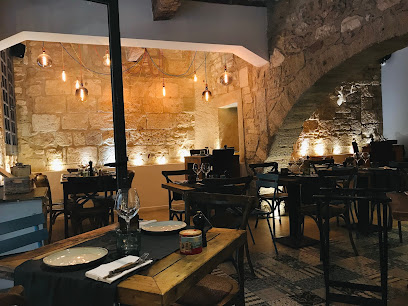
La Coquille
Discover the flavors of France at La Coquille in Montpellier – where fine dining meets a vibrant café atmosphere.
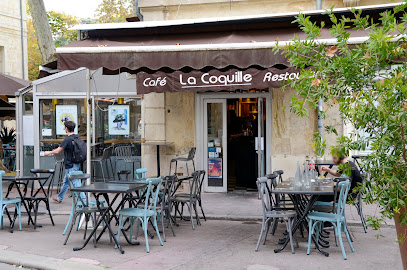
Le Chat Perché
Discover exquisite French and Mediterranean cuisine at Le Chat Perché in Montpellier – where every dish tells a story.
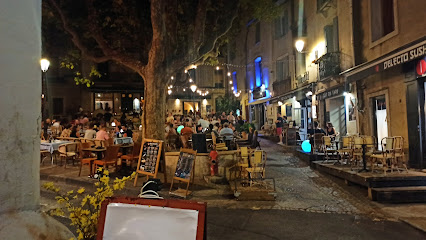
MaMaison
Experience exquisite French cuisine at MaMaison in Montpellier - where tradition meets modern elegance for an unforgettable dining experience.
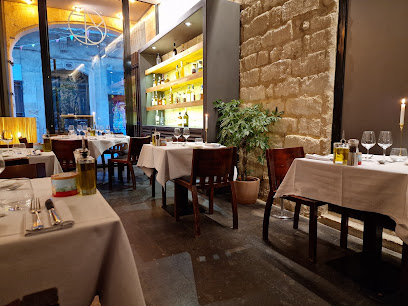
Pastis Restaurant
Experience the essence of French cuisine at Pastis Restaurant in Montpellier—where tradition meets modernity for an unforgettable dining adventure.
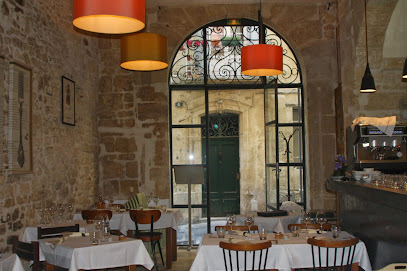
Le Grillardin
Discover the essence of traditional French cuisine at Le Grillardin, Montpellier's top destination for delightful dining experiences.
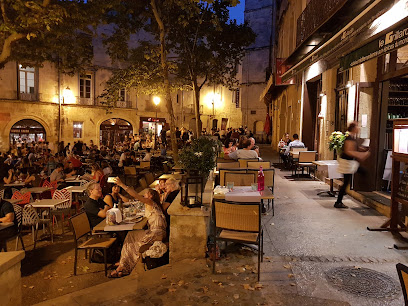
Balthazar café & restaurant
Experience exquisite French and Mediterranean cuisine at Balthazar Café & Restaurant in Montpellier - where every meal is a celebration.
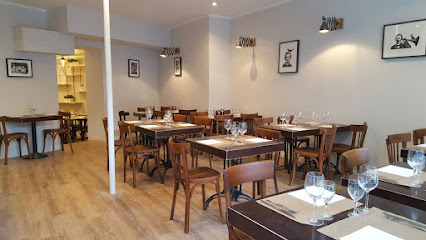
Markets, malls and hidden boutiques
Shopping Centre Odysseum
Discover Odysseum, Montpellier's ultimate shopping destination featuring diverse shops, delicious dining, and exciting entertainment for all ages.
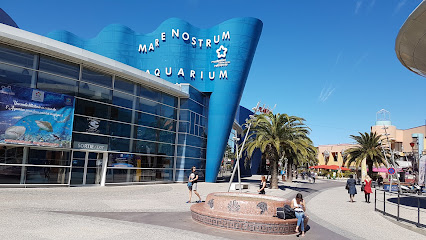
Centre Commercial Le Polygone
Experience unparalleled shopping and dining at Centre Commercial Le Polygone in Montpellier, a vibrant hub for tourists and locals alike.
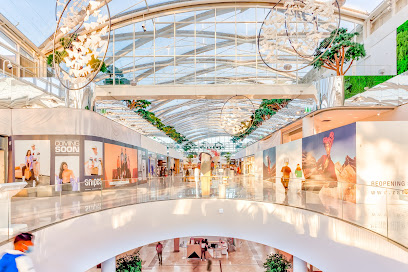
Galeries Lafayette
Explore Galeries Lafayette in Montpellier for an exquisite shopping experience featuring fashion, beauty, and local delicacies in a stunning setting.
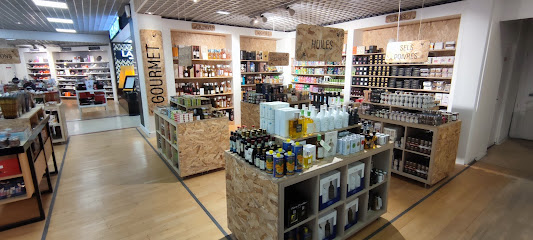
La Galerie - Géant Près d'Arènes
Explore La Galerie - a vibrant shopping mall in Montpellier with a diverse range of boutiques, dining options, and entertainment for an unforgettable shopping experience.
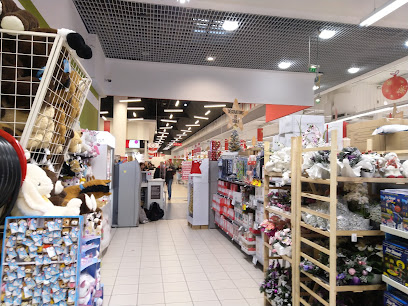
Easter Egg La petite boutique des cultures geeks
Discover a unique blend of literature and pop culture collectibles at Easter Egg La Petite Boutique des Cultures Geeks in Montpellier.
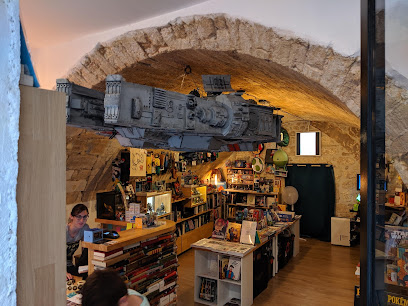
BRAD BOUTIQUE
Explore Brad Boutique in Montpellier for exquisite vintage clothing and accessories, where each piece tells a story of timeless fashion.
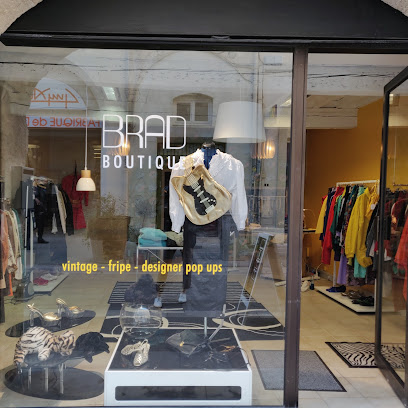
People's Rag
Explore a trendy clothing haven in Montpellier, offering stylish apparel, shoes, and accessories for fashion-forward shoppers.
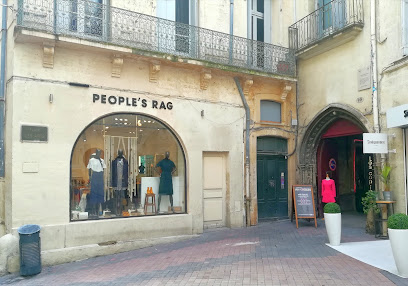
IN SITU Originals
Explore the latest trends in men's fashion at IN SITU Originals, a premier shopping destination in the heart of Montpellier, France.
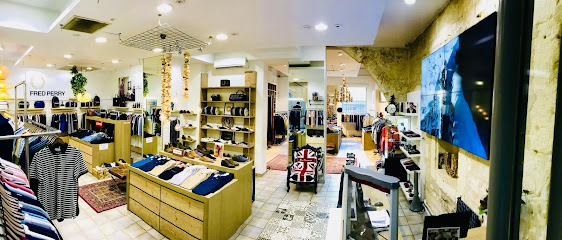
Concept Store Mona Mour
Explore Concept Store Mona Mour in Montpellier for unique gifts and local artistry that capture the essence of your travels.
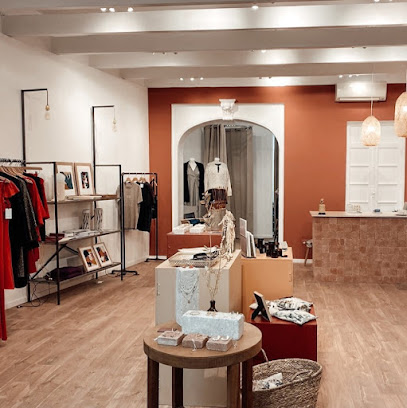
A La changerie
Explore A La Changerie in Montpellier for unique vintage fashion pieces that tell a story and add character to your wardrobe.
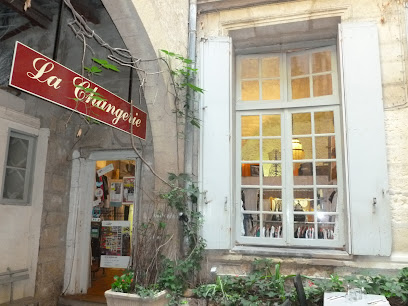
Essential bars & hidden hideouts
Fitzpatrick's Irish Pub
Discover the authentic Irish experience at Fitzpatrick's Irish Pub in Montpellier, where great food, drinks, and camaraderie await.
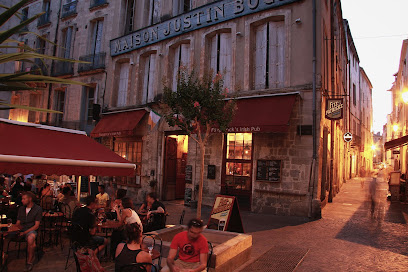
The Shakespeare
Experience the vibrant atmosphere of The Shakespeare in Montpellier, where delicious gastropub cuisine meets a lively bar scene.
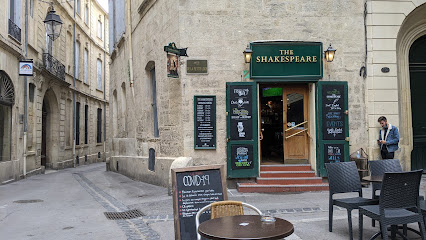
Le Tord Boyaux
Experience the best of Montpellier's nightlife at Le Tord Boyaux, a bar offering craft beers, cocktails, and wines in a lively, inviting atmosphere.
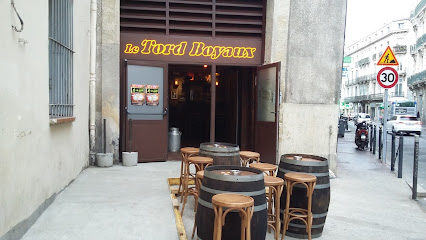
Le Rebuffy
Experience the lively atmosphere of Le Rebuffy, a must-visit pub in Montpellier offering a wide selection of drinks and a vibrant social scene.
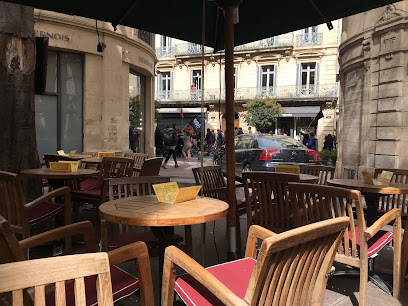
The Temple Bar
Experience the lively atmosphere of The Temple Bar in Montpellier, where local drinks and vibrant nightlife create unforgettable memories.
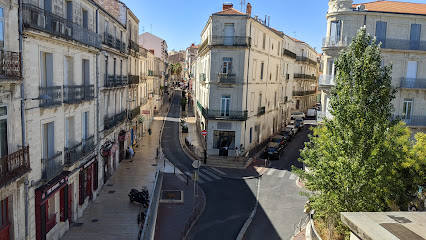
La Distillerie
Experience the vibrant nightlife of Montpellier at La Distillerie, where unique cocktails and delicious cuisine come together in a lively atmosphere.
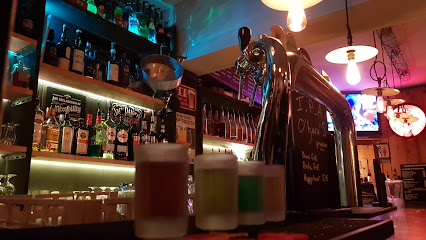
Bar Le Foch
Discover Bar Le Foch: A lively pub in Montpellier offering exquisite drinks and a vibrant atmosphere for an unforgettable night out.
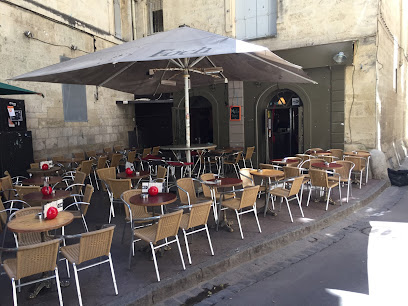
Le Clandestin
Discover the best wine bar in Montpellier, Le Clandestin, offering an exquisite selection of wines and a cozy atmosphere.
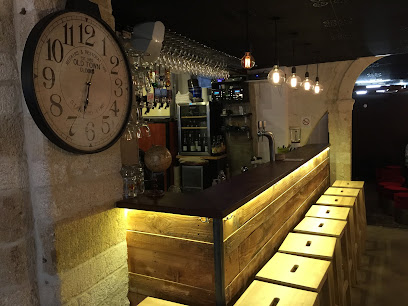
Los Parigos
Experience the vibrant nightlife at Los Parigos, Montpellier's favorite bar for craft cocktails and local brews in a lively atmosphere.
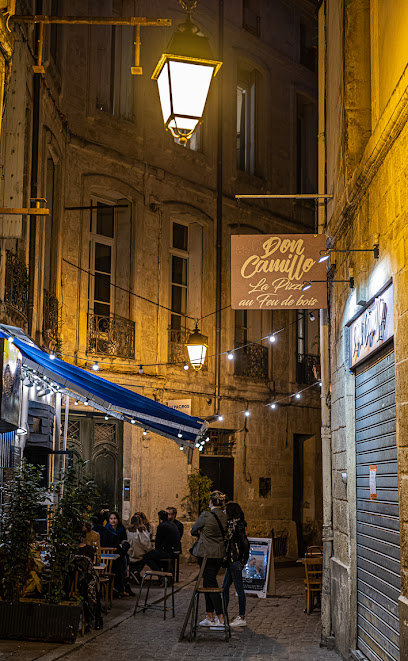
Le Louis Blanc
Experience the vibrant nightlife of Montpellier at Le Louis Blanc, a cocktail bar known for its creative drinks and delicious tapas in a lively atmosphere.
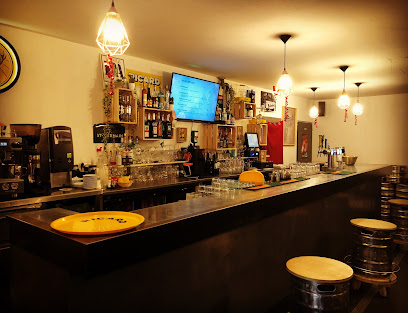
Local Phrases
-
- HelloBonjour
[bohn-zhoor] - GoodbyeAu revoir
[oh ruh-vwahr] - YesOui
[wee] - NoNon
[nohn] - Please/You're welcomeS'il vous plaît
[seel voo pleh] - Thank youMerci
[mehr-see] - Excuse me/SorryExcusez-moi
[ehk-skyew-zay mwa] - How are you?Comment ça va?
[koh-mohn sah vah] - Fine. And you?Bien. Et vous?
[byan. ay voo] - Do you speak English?Parlez-vous anglais?
[par-lay voo ahn-glay] - I don't understandJe ne comprends pas
[zhuh nuh kohm-prahnd pah]
- HelloBonjour
-
- I'd like to see the menu, pleaseJe voudrais voir le menu, s'il vous plaît
[zhuh voo-dray vwahr luh muh-nyuh, seel voo pleh] - I don't eat meatJe ne mange pas de viande
[zhuh nuh mahnj pah duh vyand] - Cheers!Santé!
[sahn-tay] - I would like to pay, pleaseJe voudrais payer, s'il vous plaît
[zhuh voo-dray pay-ay, seel voo pleh]
- I'd like to see the menu, pleaseJe voudrais voir le menu, s'il vous plaît
-
- Help!Au secours!
[oh seh-koor] - Go away!Allez-vous en!
[ah-lay voo zahn] - Call the Police!Appelez la police!
[ah-pay-lay lah po-leece] - Call a doctor!Appelez un médecin!
[ah-pay-lay uh may-duh-sahn] - I'm lostJe suis perdu(e)
[zhuh swee pair-doo] - I'm illJe suis malade
[zhuh swee mah-lahd]
- Help!Au secours!
-
- I'd like to buy...Je voudrais acheter...
[zhuh voo-dray zheh-tay...] - I'm just lookingJe regarde juste
[zhuh ruh-gahrd zhewst] - How much is it?Combien ça coûte?
[kohm-byen sah koot] - That's too expensiveC'est trop cher
[say troh shehr] - Can you lower the price?Pouvez-vous baisser le prix?
[poo-vay voo beh-say luh pree]
- I'd like to buy...Je voudrais acheter...
-
- What time is it?Quelle heure est-il?
[kell er ay-teel] - It's one o'clockIl est une heure
[eel ay tun er] - Half past (10)Dix heures et demie
[dees er ay duh-mee] - MorningMatin
[mah-tahn] - AfternoonAprès-midi
[ah-pray mee-dee] - EveningSoir
[swahr] - YesterdayHier
[yehr] - TodayAujourd'hui
[oh-zhoor-dwee] - TomorrowDemain
[duh-mahn] - 1Un
[uhn] - 2Deux
[duh] - 3Trois
[twah] - 4Quatre
[kah-truh] - 5Cinq
[sank] - 6Six
[sees] - 7Sept
[sept] - 8Huit
[weet] - 9Neuf
[nurf] - 10Dix
[dees]
- What time is it?Quelle heure est-il?
-
- Where's a/the...?Où est...?
[oo ay...] - What's the address?Quelle est l'adresse?
[kell ay lah-dress] - Can you show me (on the map)?Pouvez-vous me montrer (sur la carte)?
[poo-vay voo muh mohn-tray (sir lah kart)] - When's the next (bus)?Quand est le prochain (bus)?
[kahnd ay luh proh-shahn (bus)] - A ticket (to ....)Un billet (pour ...)
[uhn bee-yay (poor ...)]
- Where's a/the...?Où est...?
History of Historic Center
-
Montpellier's history dates back to the 10th century when it was founded as a trading post between the Mediterranean and northern Europe. The city's strategic location made it an important center for commerce, fostering a diverse population that contributed to its cultural development.
-
In 1289, Montpellier became home to one of the oldest universities in the world, known for its faculties of medicine and law. The University of Montpellier attracted scholars from across Europe, playing a vital role in the intellectual and cultural life of the region during the Middle Ages.
-
The 16th century was marked by the French Wars of Religion, which deeply affected Montpellier. The city, with a significant Protestant population, became a battleground for religious conflicts. The aftermath brought about a wave of repression and a transformation in the social fabric of the neighborhood.
-
The 18th century witnessed a cultural and architectural flourishing in Montpellier. The construction of notable buildings such as the Place de la Comédie and the Hôtel de Ville highlighted the city's growing importance. This era established Montpellier as a cultural hub in the Languedoc region.
-
The 19th century brought significant urban development to the Historic Center of Montpellier. The expansion of the railway and the introduction of new industrial activities transformed the city, leading to population growth and a more cosmopolitan atmosphere.
-
Following World War II, Montpellier experienced a cultural renaissance, with a renewed focus on arts and education. The establishment of various cultural institutions and festivals revitalized the Historic Center, making it a vibrant area for both residents and tourists.
-
In recent decades, Montpellier has focused on urban renewal in the Historic Center, enhancing public spaces and preserving historical architecture. The integration of contemporary designs alongside historical structures illustrates the city's commitment to maintaining its rich heritage while embracing modernity.
Historic Center Essentials
-
The Historic Center of Montpellier is easily accessible from other neighborhoods via the city's efficient public transport system. You can take the tram lines 1 or 3 to the 'Comédie' stop, which is just a short walk from the heart of the Historic Center. Buses also serve the area, with several lines connecting different parts of the city. If you're coming from the Montpellier-Saint-Roch train station, it's a 15-minute walk or a quick tram ride on line 1.
-
The Historic Center is pedestrian-friendly, making it ideal for exploring on foot. For longer distances, you can use the tram system, which is reliable and affordable. Bicycles are also a popular mode of transport; you can rent one from various bike-sharing services available throughout the city. Be mindful of bike lanes and pedestrian zones, especially in crowded areas.
-
Montpellier's Historic Center is generally safe for tourists, but like any urban area, it's wise to remain vigilant. Pickpocketing can occur, especially in crowded places like Place de la Comédie. Avoid poorly lit streets at night and keep an eye on your belongings. Areas around the train station can be more prone to petty crime, so exercise caution there.
-
In case of an emergency, dial 112 for police, fire, or medical assistance. The local hospital, Hôpital Lapeyronie, provides emergency care. It's advisable to have travel insurance that covers medical emergencies. Pharmacies are widely available for minor health issues, and staff usually speak English.
-
Fashion: Do wear comfortable shoes for walking; the streets are cobblestoned. Don’t wear overly casual or beach attire when dining out. Religion: Do be respectful at religious sites; cover shoulders and knees. Don’t take photos in places where it’s prohibited. Public Transport: Do validate your ticket before boarding. Don’t talk loudly or eat on public transport. Greetings: Do greet with a polite 'Bonjour' and a smile. Don’t skip pleasantries; it's considered rude. Eating & Drinking: Do try local wines and dishes; restaurants take pride in their cuisine. Don’t waste food; it’s seen as disrespectful.
-
To experience the Historic Center like a local, explore the narrow streets and discover hidden cafés and boutiques. Visit the Marché des Arceaux for fresh produce and local delicacies. Engage with local artisans and shopkeepers; many are happy to share stories. In the evening, consider enjoying a glass of wine at one of the terraces on Place de la Comédie to soak in the vibrant atmosphere.
Trending Landmarks in Historic Center
-
Place de la Comédie
-
Esplanade Charles-de-Gaulle
-
Arc de Triomphe
-
Promenade du Peyrou
-
Musée Fabre
-
Montpellier Cathedral
-
Aqueduc Saint-Clément
-
Esplanade de l’Europe
-
Château De Flaugergues
-
La Tour de la Babote
-
Place de La Canourgue
-
Château de la Mogère
-
Fountain of the Three Graces
-
Musée du Vieux Montpellier
-
Place du Nombre d'Or
Nearby Cities to Historic Center
-
Things To Do in Nîmes
-
Things To Do in Avignon
-
Things To Do in Marseille
-
Things To Do in Aix-en-Provence
-
Things To Do in Toulouse
-
Things To Do in Girona
-
Things To Do in Pas de la Casa
-
Things To Do in Soldeu
-
Things To Do in Canillo
-
Things To Do in El Serrat
-
Things To Do in Ordino
-
Things To Do in Encamp
-
Things To Do in La Massana
-
Things To Do in Escaldes-Engordany
-
Things To Do in Arinsal











